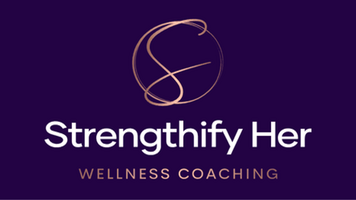
You keep meaning to get back to your workouts—but between early meetings, aging parents, endless emails, and making sure everyone else is okay, your energy is gone before you even put on your sneakers.
If you're a woman in your 40s or 50s, navigating perimenopause or menopause, you're likely no stranger to exhaustion. Not just the physical kind, but the mental load of constantly being “on” for everyone else. Add shifting hormones to the mix—hot flashes, disrupted sleep, mood swings—and wellness starts to feel like just one more thing on an already overflowing list.
But here's the truth: your body is asking for more support, not less. And that begins with setting boundaries—not just with others, but with yourself.
Setting boundaries around fitness isn't about becoming rigid or militant. It's about carving out space for movement and recovery in a way that honors your stage of life, your changing physiology, and your actual bandwidth. It's about creating a sustainable path forward—one where your well-being isn’t always at the bottom of the list.
Why Boundaries Matter Now More Than Ever
During perimenopause and menopause, hormonal fluctuations can cause fatigue, brain fog, increased stress, joint stiffness, and changes in metabolism. These shifts require a more nuanced approach to exercise.
Pushing through exhaustion or guilt-skipping movement altogether can both be forms of self-sabotage. Boundaries help you:
-
Prioritize what truly serves your body
-
Avoid overcommitting and under-recovering
-
Stay consistent without burning out
The goal isn’t intensity; it’s intention.
Types of Boundaries to Set
Time Boundaries
Give yourself permission to schedule fitness the way you would a meeting or appointment. This might mean:
-
Blocking out 30 minutes for a walk, even if dinner isn’t made yet
-
Saying no to late-night work emails so you can sleep and recover
-
Keeping weekends sacred for movement and nature
Energy Boundaries
Your energy is a finite resource. Tune in before every workout:
-
Do I feel drained or simply unmotivated?
-
Would stretching, yoga, or a walk serve me better today?
Adjusting your workouts based on how you feel is wise, not weak.
Emotional Boundaries
Unhook from the "shoulds."
-
You don’t need to do what your 30-year-old self did
-
You don’t owe anyone a certain body type
-
You can say no to workouts that feel punishing or performative
Fitness in this season should be about strength, grace, and sustainability.
Social Boundaries
You may need to distance yourself from:
-
Fitness influencers whose routines don't match your reality
-
Friends who push diets or fads
-
Family members who question your "me time"
You don’t owe anyone an explanation for putting your health first.
Listening to Your Body: What That Really Means
Perimenopause and menopause make body awareness more important than ever. Listening to your body isn’t about indulging every whim; it’s about:
-
Recognizing the difference between "tired" and "depleted"
-
Noticing when stress is masking itself as restlessness
-
Giving yourself permission to slow down or modify
Rest and recovery are not luxuries. They are part of your fitness strategy.
Practical Tips to Maintain Boundaries
-
Use a flexible workout plan: Include backups for low-energy days
-
Journal your workouts and how you feel before and after
-
Create visual cues: A yoga mat out, sneakers by the door, a water bottle on your desk
-
Communicate needs: Let your partner or family know your workout time is non-negotiable
-
Celebrate consistency, not intensity
Mindset Shifts
This stage of life is not about decline; it’s about redefining. Fitness is no longer about fitting into jeans or impressing anyone. It’s about:
-
Having energy for your life
-
Staying mobile, strong, and pain-free
-
Creating a deeper connection with your body
A new definition of fitness success: You showed up for yourself today.
The Value of Professional Guidance
Navigating fitness during perimenopause and menopause can be complex. That’s why working with a professional health and fitness coach who is menopause-informed can be a game changer.
A qualified menopause informed coach can help you:
-
Design smart, sustainable workout routines tailored to your symptoms and schedule
-
Adjust intensity based on hormonal shifts
-
Stay accountable while honoring your boundaries
-
Replace outdated "no pain, no gain" mindsets with strategies that support long-term vitality
You don’t have to do this alone. The right support makes setting boundaries feel less like restriction and more like empowerment.
Setting boundaries for your fitness is not selfish. It’s strategic. It’s powerful. It’s the foundation of long-term health and vitality. This chapter of life asks a lot of you, so ask yourself this: are you willing to give something back to yourself?
Start with one boundary. One walk. One decision to move your well-being up the list. That’s where the shift begins

